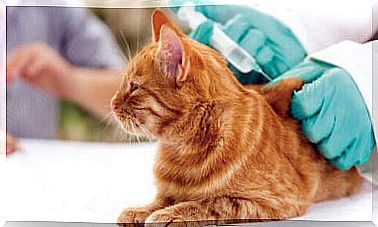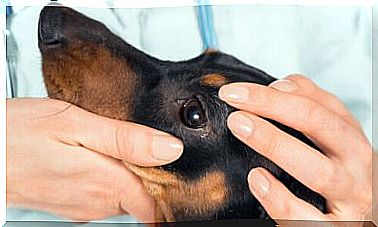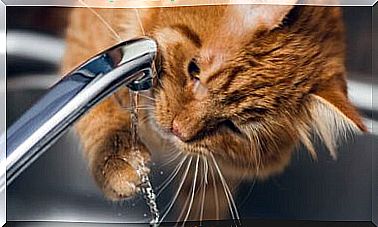Basic Care For The Domestic Ferret

The ferret is a small carnivorous mammal that can usually weigh between 900 grams and 2 kg. He can easily adapt to domestic life and is characterized by being very active and always driven by unlimited curiosity. He sleeps several hours a day and, due to his physical characteristics, needs a lot of care and attention. Below we will show you a series of tips to take better care of your ferret. If you already have one or want to adopt it soon, don’t miss these useful tips.
An unconventional pet
The ferret is an animal already domesticated for a long time because it was considered useful for the control of some animals harmful to crops and villages. Currently, although it is considered an exotic animal, many people choose it as simple to animal companionship.
By educating him as a puppy, he is able to learn and respect the habits of the family, quickly becoming another member of it. He loves running, browsing and playing with all the people around him.

Precisely for this reason, when we talk about your basic care, it is vital that you take a number of important precautions. First of all, you will never have to lose sight of it or expose it to possible dangers, inside and outside the home. It is necessary to check that the cabinets, drawers or boxes do not contain toxic elements within the reach of this cute mammal.
Habits and characteristics
The ferret has a life expectancy of around 8 years and becomes an adult after one year of age. The breeding season runs from December to June and can give birth to between 2 and 16 cubs. There are already apps that will help you manage these calendars.
Although a very active animal when awake, the ferret has mostly nocturnal habits. That is, he sleeps about 14/15 hours a day. You will have to make sure that his rest takes place in completely dark places, since only in the dark, his body is able to generate melatonin.
What are the basic ferret care?
Where to keep it and how to clean it
The goal is to allow your ferret to live in the best possible conditions. For this, the ideal is to buy a wide cage and with a soft bottom, deep enough. You have to keep in mind that this little mammal loves to dig. Even better if this terrarium contains two separate spaces, one for daytime activities and another, away from light, for rest.
Taking care of the ferret ‘s hygiene is another factor of primary importance, as it is a mammal that can often have a bad smell. At least once a week, you will need to clean and disinfect the cage with water and neutral detergent.
A good strategy to keep the level of cleanliness high is to educate the ferret to do its toilet in a specific place, with sand, a bit like it happens with cats. With a little patience, you will be able to educate your ferret in this regard.
Caring for a ferret: nutrition
The ferret is carnivorous and its diet is based on the consumption of animal proteins. As an alternative, you can safely use specific ferret feeds or even puppy cat food. It is not recommended to give it raw meat, as the bacteria present here can be harmful to the health of the organism. Even 5% fiber is needed to facilitate digestion.
Also, it’s a great idea to add vitamin supplements to your diet. To do this, it is advisable to first consult your veterinarian: he will be able to give you all the information on which products to choose and how often to use them.
A trusted veterinarian experienced in ferrets
Basic ferret care also includes prevention and medical treatments. As with other pets, also in this case you will have to take your four-legged friend to the vet, respecting the calendar of the corresponding vaccines. Any possible problem will be diagnosed at the right time and treated in the most appropriate way. It is always best to consult an experienced ferret specialist.
Watch out for the heat
An important aspect that should not be underestimated is the sensitivity of ferrets to changes in temperature, especially when it comes to heat. Since this animal does not possess automatic body thermoregulation capabilities, it can end up being the victim of dangerous thermal shocks .
We suggest you wet the ferret’s body with water, in summer and on the hottest days, by placing bottles of ice water near its cage. These are simple and advantageous solutions that will allow the pet to cool off, avoiding the dangers of heat.

Having a ferret in the house
L ‘ physical activity is important for these animals, which can be made out of the cage for a few minutes a day. Always be careful not to expose them to household hazards such as plugs, cables, balconies, etc. The ideal is to have a special leash and harness to control the ferret while walking, just like normal dog leashes.
Educating your ferret can take time, but with patience you will get great results. Begin, for example, by teaching him to fulfill his physiological needs in the litter box.
By treating it every day with affection and dedication, the ferret will surprise you: it is in fact a very friendly and docile pet. He will never be as obedient as a dog or a cat, but he will still fill your home with joy and color.
We conclude this article dedicated to how to take care of a ferret by reminding you that you will have to take care of cutting the nails at regular intervals. You will also need to brush the thick coat of your four-legged friend often, as well as check the hygiene of the delicate ears. For an even more complete cleaning, you can bathe it, but only every 2/3 months, maximum.









